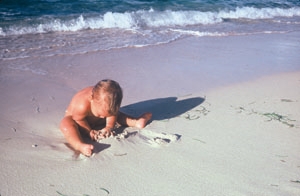The economic engine of the 21st century is the deployment of clean energy.
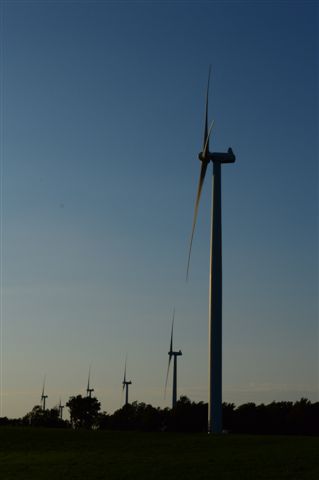
During the 19th century, the Industrial Revolution was fueled by coal. During the 20th century, oil became an increasingly important fuel. Coal and oil were eventually joined by nuclear power.
In the early days, nobody cared about miners breathing coal dust. Nobody cared about black smoke pouring out of a smokestack into a blue sky. Few people cared about radioactive waste. Factories provided jobs and earned a profit. Ships sailed around the world. Lights shone in a growing number of homes.
But though the cows give milk, they also produce a substantial amount of muck. Somebody has to shovel all that muck out of the barn, and then put it somewhere.
We have spent nearly two centuries putting an increasing amount of muck into the atmosphere, and into the oceans. After a while, our muck began to change the chemistry of the atmosphere, and the chemistry of the oceans. The polluted atmosphere trapped more heat; the polluted oceans became more acidic. Both became warmer.
Our pollution on a planetary scale—especially the tidal wave of pollution since World War II—is now beginning to cause unnatural changes in both the atmosphere and the oceans…on a planetary scale. Adam and Eve ate the apple, whereas we have poisoned all of paradise.
Today, in the 21st century, we are producing more muck than ever before. Our day of reckoning is coming; most of us would gladly bequeath it to our children and grandchildren. They shall inherit the heat and the hurricanes.
Have those children and grandchildren ever been asked whether they want this catastrophe on a planetary scale? Have they been adequately educated to handle decades of drought and fires and flood? Have they been adequately educated to handle unprecedented tides of climate refugees, seeking water and food and a haven from the scattered war zones?
We are sailing on the Titanic, confident, unsinkable. Ahead of us in the dark night floats an enormous iceberg. It is much larger than normal icebergs, for it broke away from the crumbling polar ice cap.
There are letters carved into the iceberg. Do you know what they say?
Made in USA.
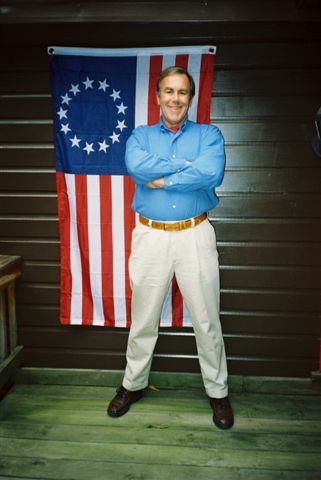
It doesn’t have to be that way.
Let’s go back to America’s foundation. Let’s go back to the bold and vibrant years when people took up the task of creating a new kind of nation.
For seven years, between 1756 to 1763, France and England fought a war over their colonial holdings in the New World. England won, and thus claimed vast expanses of land across the North American continent; France lost Canada, but retained the sugar islands in the Caribbean.
For seven years, the American colonials had fought beside their British allies. They had shared the struggle, and they had shared the victory. Thus they were shocked at how they were treated by the British after the war.
The rift began when startling news arrived from London: Parliament had established the Proclamation Line of 1763. Determined to avoid any further conflict between the unruly colonials and the Indians further west, the British Parliament had drawn a line (on their own maps, at least) from Hudson Bay to Florida, stretching along the top of the Appalachian Ridge. The Proclamation of 1763 forbade the colonials to move west of that line; further, it ordered settlers already west of the line to leave home and move back east.
Suddenly, after a century and a half of British settlement in the New World, and without any discussion between the Mother Country and her colonial children, we Americans were told that we could not cross the Appalachian Mountains. That long ridge now stood like a wall between the colonies along the Atlantic seaboard, and the wilderness further west. We were forbidden to settle on land where the soil was deep and black. Land which awaited the settler’s axe, the settler’s plow, the settler’s cabin, and the settler’s church. Land where a great number of streams and rivers led to the fabled Ohio River, and then to the great Mississippi. The Proclamation Line of 1763 gave the Indian savages formal title to all that land, and told us colonials to leave those barbaric tribes undisturbed, forever.
Well, that was just the first shock.
At the end of seven years of war with France, Britain was victorious, but badly in debt. The British decided that since they had spent all that silver and gold to protect their children in America, then those children (an industrious and prosperous people) should be called upon to help pay the debt. And the best way to do that, figured the British Parliament, was to place tariffs, or taxes, on various goods traded between Britain and America. The Revenue Act of 1764 began a decade of tariffs and bitter argument. The Americans claimed they had fought the French and Indians just as much as the British had, and thus they had squared their debt. The Americans saw these new taxes as a way of squeezing more money from the colonies, and they weren’t about to give up a single principled penny.
During the bitter decade from 1764 to 1775, British customs officers collected very little money. On the other hand, American shopkeepers and farmers and craftsmen became exceptionally well educated in the fields of economics and politics and law. The colonials discussed the hated taxes, and their lack of representation in Parliament, and the unfairness of courts of law in America presided over by judges appointed in London. They discussed restrictions on trade with other countries in Europe, restrictions on trade with the islands in the Caribbean. With increasing fervency, the colonials discussed a broad range of topics wherever they happened to meet their fellow colonials: in the shops, in the marketplace, in the taverns, in the churches, and around the family table at home.
With a standard of literacy higher than that in Britain, the colonials read articles in the broadsheets and newspapers, written by a broad range of people with a broad range of viewpoints.
The American colonials, from Massachusetts down to Georgia, spent twelve bold and vibrant years getting educated. By the time the first musket was fired in Lexington in April, 1775, starting a war that would last eight and a half years, the Americans knew exactly—knew exactly—what they were fighting for.
Their education included one further profoundly important component.
The Founding Fathers—who wrote the documents which defined the new nation—had studied British law and Roman law. They had studied British, French, Roman and Greek philosophers. They had studied Italian architecture, Dutch finance, and the Polish cavalry. They took the best of what they learned from many countries and cultures, from epochs in the past and from the present day, then they applied that learning and wisdom to their own particular situation: the creation of a republic.
Upon that foundation of twelve years of debate and discussion, upon that foundation of a broad and open-minded education, the Americans fought their war and designed an unprecedented form of government. The debates continued right through the writing of the Constitution, and then…because the job was still not finished…through the writing and electoral approval of the Bill of Rights.
Never before in the history of mankind had so many people become so educated so quickly. And never before in the history of mankind had so many people used their education so brilliantly. They gave to future generations of Americans, and they gave to the peoples of the world, a model of government which enables us to progress—even now, two and a quarter centuries later—toward the twin dreams of democracy and freedom.
Americans were once the most innovative people in the world, for they created an unprecedented nation, based on democracy and freedom.
Now we need to be innovative again, on the same revolutionary scale, as we create an unprecedented nation based on the blessings of clean energy.
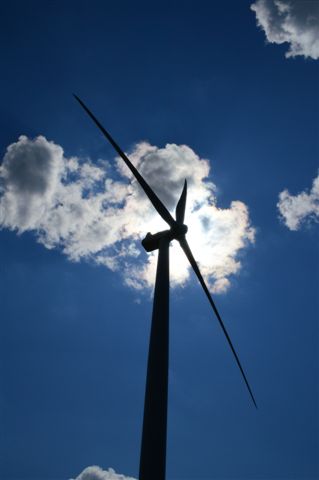
Among those blessings would be a growing number of jobs, which will bring greater economic equality, and thus a greater degree of genuine democracy.
America’s educational system, falling steadily behind as the rest of the world moves forward into the clean energy Renaissance, would be galvanized, enabling students to find not simply jobs, but lifetime careers, in the 21st century.
America would reach out to other nations around the world, becoming a member of an international team . . . as companies around the world work together to harness the wind and the sun. As universities weave their research programs together. As modern grids link countries and continents together. And as peoples around the world share a vision of a healthy Earth and a solid prosperity.
This teamwork, this sharing of the sun and wind, this nurturing of young people as the first global generation in human history, would enable us to build a solid and lasting peace.
Jobs, education, and a growing prosperity that engenders a stronger democracy: these are goals within reach.
A massive reduction in pollution, and thus a fighting chance against the devastation of climate change: this is a goal within reach.
International teamwork, enabling us to better understand each other as we tackle the great challenges: this is a goal within reach.
Building a peace that, for the first time in human history, eliminates forever the horrors of war: this is a great goal, truly within reach.
Washington is wallowing. New Mexico and Colorado are burning. The storms are growing bigger. The economy is stagnant at best; realistically, it is crumbling.
The economic engine of the 21st century is the development of clean energy. The intellectual engine of the 21st century is the clean energy Renaissance.
Great challenges produce great opportunities, if we are ready to innovate.
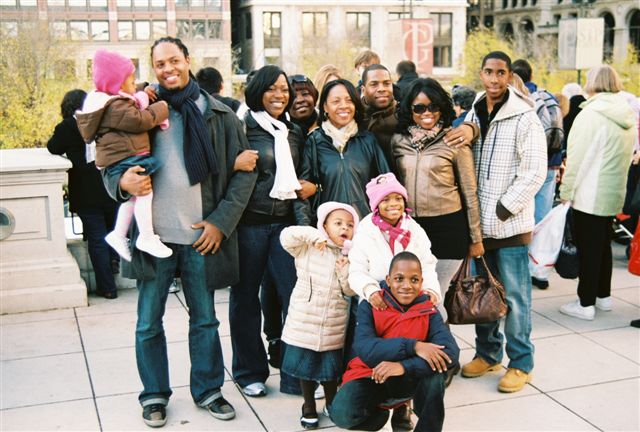
The question becomes: Do we believe in ourselves, or not?
Do we believe in what a Creator set out to do on this extraordinary planet, or not?
Do we believe in the children whom we have brought into this mess of a world, and whom we have fed and educated and taught to climb to a mountaintop with their own backpack and boots?
Do we believe in those remarkably beautiful young people with their bright eyes and ready smiles?

Or do we believe in bickering politicians and market economics and the next Big Technology?
As an English teacher of many years in several countries, I have found an innate motivation within young people from a multitude of cultures. They can be enormously enterprising, and their community spirit can be vibrant.
That potential, that vast wealth of talent and motivation and optimism, has not yet been given a chance to show what it can do.
We are at the brink of something awful…a catastrophe beyond anything in human experience. Meanwhile, most folks are mowing the lawn and watching the ball game.
But we are also at the brink—or, at the door of golden opportunity—of a world as new and bold and successful . . . as the human mind is finally capable of creating.
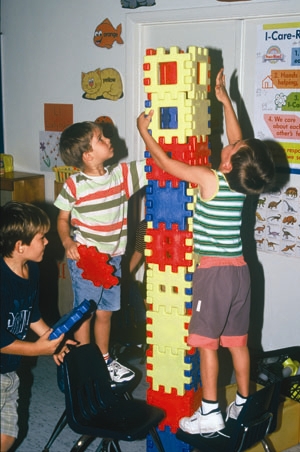
The awakening—the awareness of the upheavals that are coming, and the belief in our ability to rise to the occasion—will not come from Congress or City Hall. It will not come from Wall Street. It will not come from Silicon Valley. And it certainly will not come from Hollywood.
But it can come…from the schools. It can come from teachers who are teachers because they care deeply about the kids. It can come from an entirely new curriculum, a global curriculum, on the twin themes of climate change and clean energy. It can come from a new set of courses, taught from kindergarten to graduate school, which prepare students not just for a job, but for a lifetime career in clean energy engineering, clean energy economics, clean energy law. For a lifetime of living in harmony with nature. And for building the foundation of a just and lasting peace.

There was a time when people got out of bed in the morning and went to work building a new cathedral. Gradually, the walls of the nave, the tall windows with tracery, the arches, the dome, the twin towers and the graceful spire…stood above the mud and wattle dwellings of The Old Way of Living.
We must build the new cathedrals that our world so urgently needs today. Cathedrals in the form of offshore wind farms, solar collectors in the deserts, international grids…and a new understanding of prosperity, and democracy, and respect for nature…and peace.
The kids can do it.
If you ask the students in a classroom, in any country, in any time zone, “Who is willing to build a new and better world?”, you will see a multitude of hands raised and waving.
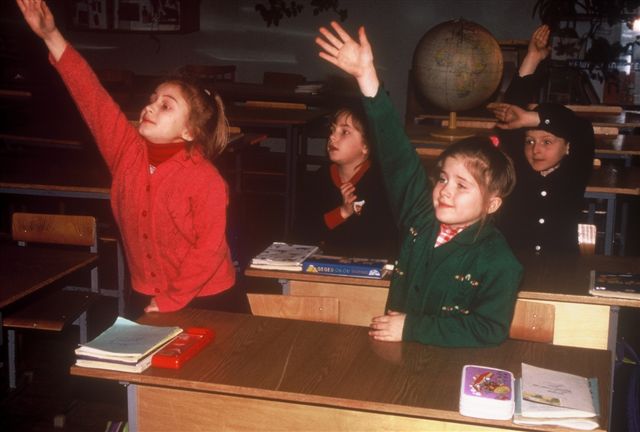
Despite the great challenges that face us, we have the means to tackle those challenges. Yes, we have momentous problems, but we also have some potentially magnificent solutions.
No one ever started a war over a wind turbine.
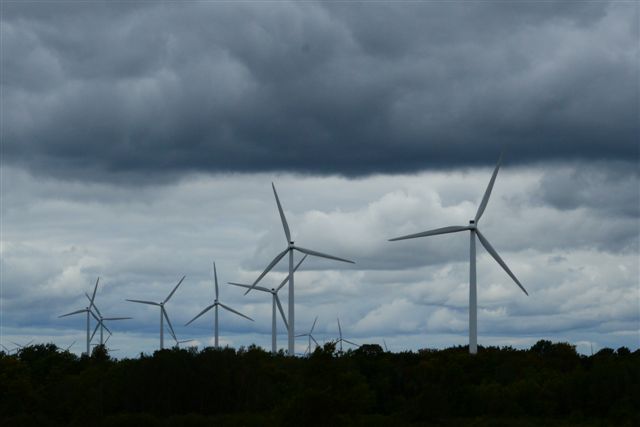
The wind belongs to all of us, not to nations, not to stockholders, not to the banks.
The wind, and the sun, would teach us to share…not to hoard, not to squabble, not to throw sand in our sandbox.
The wind and the sun would teach us to learn from each other, not to stifle ingenuity.
The wind and the sun could bring our global children together, as together they master the production of clean energy.
The wind and the sun do not call foreign children “collateral damage”. Instead, the wind lifts the kites of all, equally, and the sun shines on their uplifted faces, equally.
The wind and the sun would give our spirits a genuine frontier, better than the moon, for both the challenges and the blessings would belong to all of us.
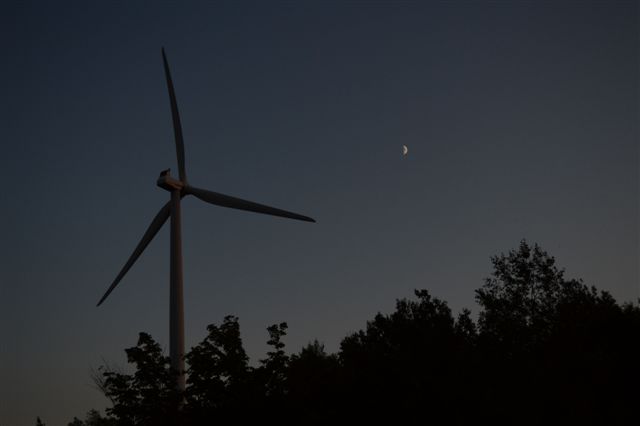
The wind and the sun know no trade barriers, no ethnic hatred.
They are waiting for research institutes and local factories to spring to life in Africa, and in Nicaragua, and in Tibet, and in Viet Nam, and in Afghanistan, and in Iraq. Yes, the wind and the sun are waiting to go to work in Mesopotamia, the Cradle of Civilization.
The wind and the sun knock on all doors equally.
We quarrel over oil, and claim to fight our wars for democracy.
What is more democratic than the wind turning turbines for all, equally,
Providing electricity for all, equally,
And thus jobs and classrooms for all, equally?
Let us learn, equally and together, how to build a clean and prosperous world.
And while we learn, equally and together—while we design and build international grids, while we weave together our universities, while we weave together our economies and our visions of the future—we shall also be doing something unprecedented in all of human history.
We shall be building a peace that is not merely the absence of war.
As we bring our world back to health—with clean air, and solid ice, and life once more flourishing in the seas—we shall be honoring the Creator, no matter in what mosque or temple or tabernacle or church or cathedral He may dwell.
To honor the Creator by restoring health to His creation is to bring peace to this world.
As we learn to design a better wind turbine, as we learn to understand each other, as we work together with a global vision of health and prosperity, so shall we design and build—for the first time in human history—a strong and just and permanent peace.
Let the wind turbine, and the solar collector, and the electric car, and the modern grid, be the means by which we educate ourselves. Let them be the tools that enable us to progress toward the twin dreams of health and prosperity.
Let them be the means by which we no longer ache for, but insist on, a peace that is pleasing to everyone’s Creator, and to everyone’s child.

This is the dream, young people of the world, that I commend to you.
The challenges which await you will enable you to transform the course of human history, as well as the history of your planet.
As you select (and design) classes in the schools which you attend, as you select the career which you hope to follow, as you bow your heads and pray in the temple or mosque or church of your choice, as you marry and raise your children, and as you vote, please remember the great responsibility which today we are offering to you.
You are the first global generation in human history, with unprecedented technology, unprecedented communication, and an unprecedented destiny.
The sun and the wind…are waiting for you to go to work.
Join the Renaissance. Let the great adventure begin.
The sun, which blesses me with richest earthly finery,
Shines no warmer than my hopes upon thee.
